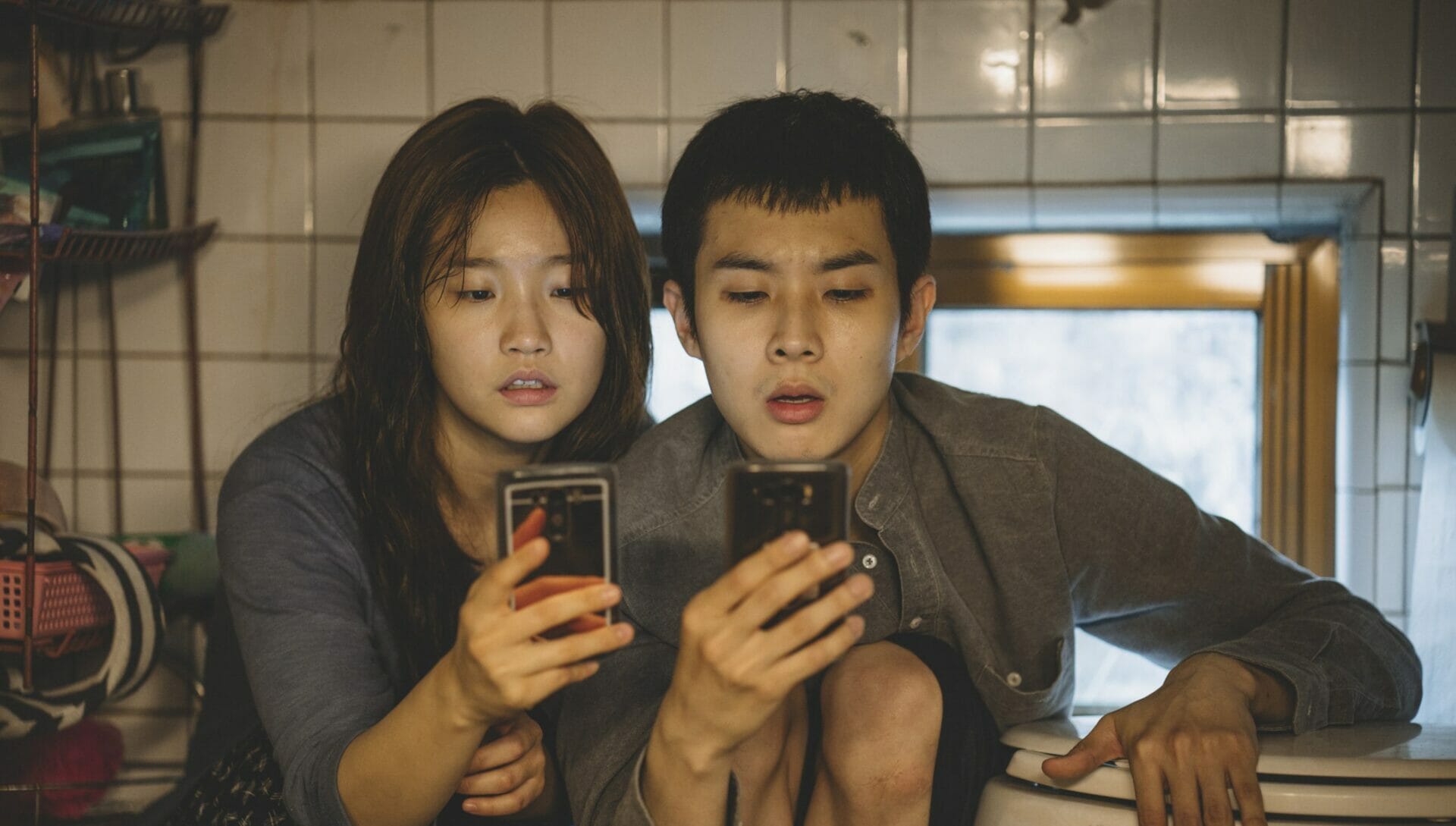
Parasite | Defying definition and labels
Year
Runtime
Director
Main Cast
Cinematographer
Production Designer
Music by
Country
Format
Genre
By
After his two English-language films Snowpiercer (2013) and Okja (2017), Parasite was a cinematic homecoming for Korean director Bong Joon-ho. Set in the capital city of Seoul, it is a story that defies definition or labels, inhabiting a genre limbo that Bong has made his home throughout the years.
Ducking and weaving between black comedy, thriller, satire, family drama, and horror, the story follows the lower-class Kim family as they scheme their way into the wealthy Park household, assuming false names and identities in order to secure service jobs and a much-coveted stable income. For Bong, the film inherently links to modern-day Korean culture: the so-called “Hell Joseon” of wealth disparity and youth unemployment. Even the thematic topography of the film – what Bong calls a “stairway movie,” stratifying social status by altitude – reflects the mountainous capital city, where the rich live in modernist hilltop palaces and the poor live half-buried in semi-basement apartments.
A global appeal
And yet, Parasite resonated globally on an unprecedented scale; only a few months after becoming the first South Korean film to win the Palme D’Or at the 2019 Cannes Film Festival, it became the first non-English film to win the Best Picture award at the 92nd Academy Awards. It’s a recognition of Bong, but also of the Korean film tradition he belongs to, a tradition that celebrated its centennial the year of Parasite’s release.
A member of the New Korean Cinema generation, Bong rose to prominence in the early 2000s alongside Park Chan Wook, Lee Chang Dong, Kim Jee Woon, and Kim Ki Duk, all of whom have contributed to Korean cinema’s growing international popularity (with Lee Chang Dong’s 2018 Burning also in competition at both Cannes and the Academy Awards).
A critique of capitalism
But if Parasite, in particular, has a global appeal, it stems from Bong’s proprietary mix of “fear, anxiety, and a kekeke sense of humor” and Hitchcockian love of plot twists, as well as the resonance of his social commentary and its portrayal through his visuals.
While contextualized in Seoul, his critique is of a late-stage capitalist society where wealth inequality is so severe that social mobility becomes the stuff of daydreams or, for those at the top, nightmares. It’s a predicament not entirely foreign to many audiences. And his visual style- precise and literal, explicitly symbolic in its use of light, space, and geometry – is so intuitive it hardly leaves the need for words.
With Parasite, Bong Joon-ho constructs a contemporary domestic gothic, a tale of class warfare that implicates all of its characters, and leaves the audience wondering who the title is really describing.
Tag
Buy a ☕ for Hypercritic









